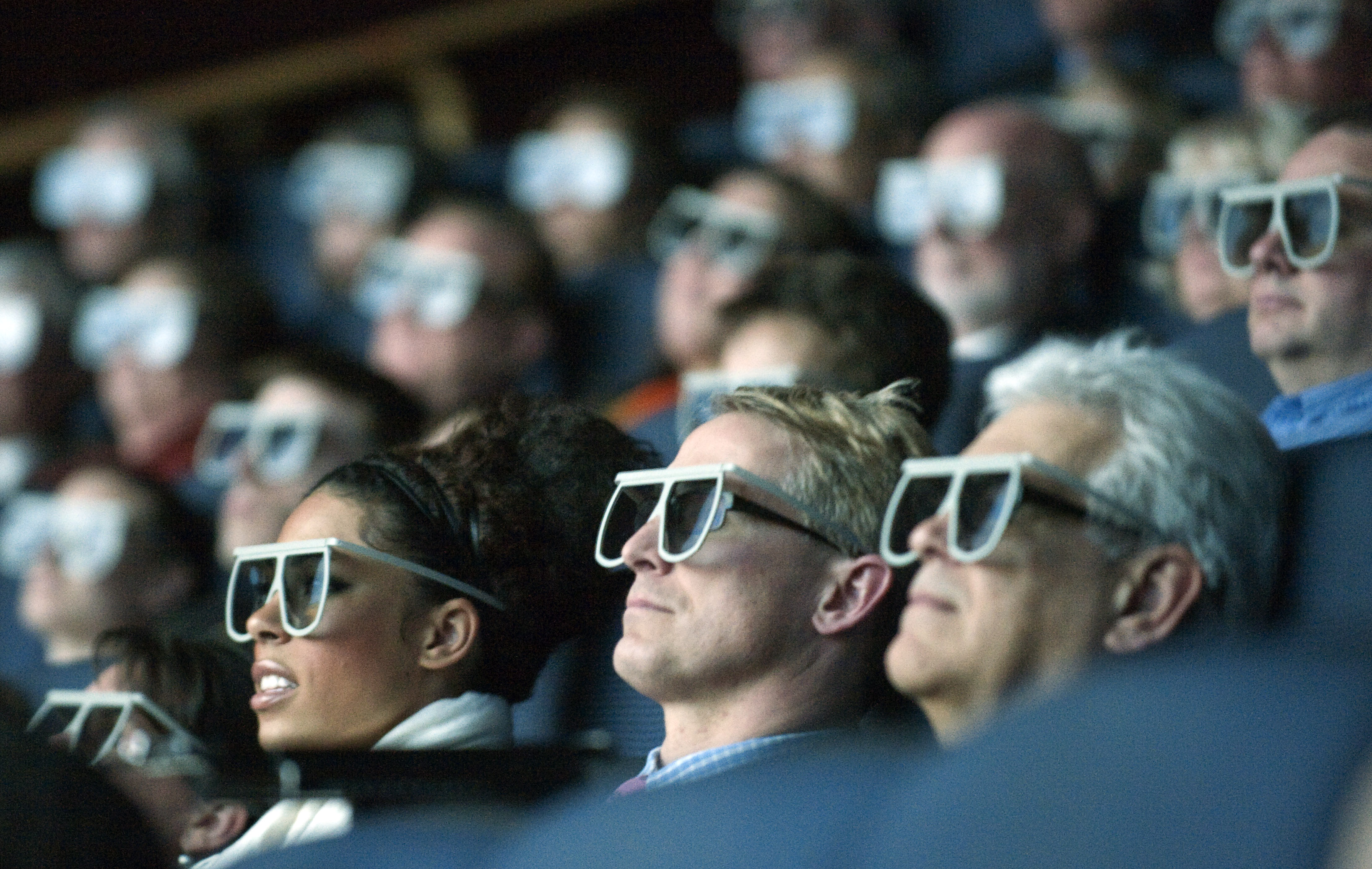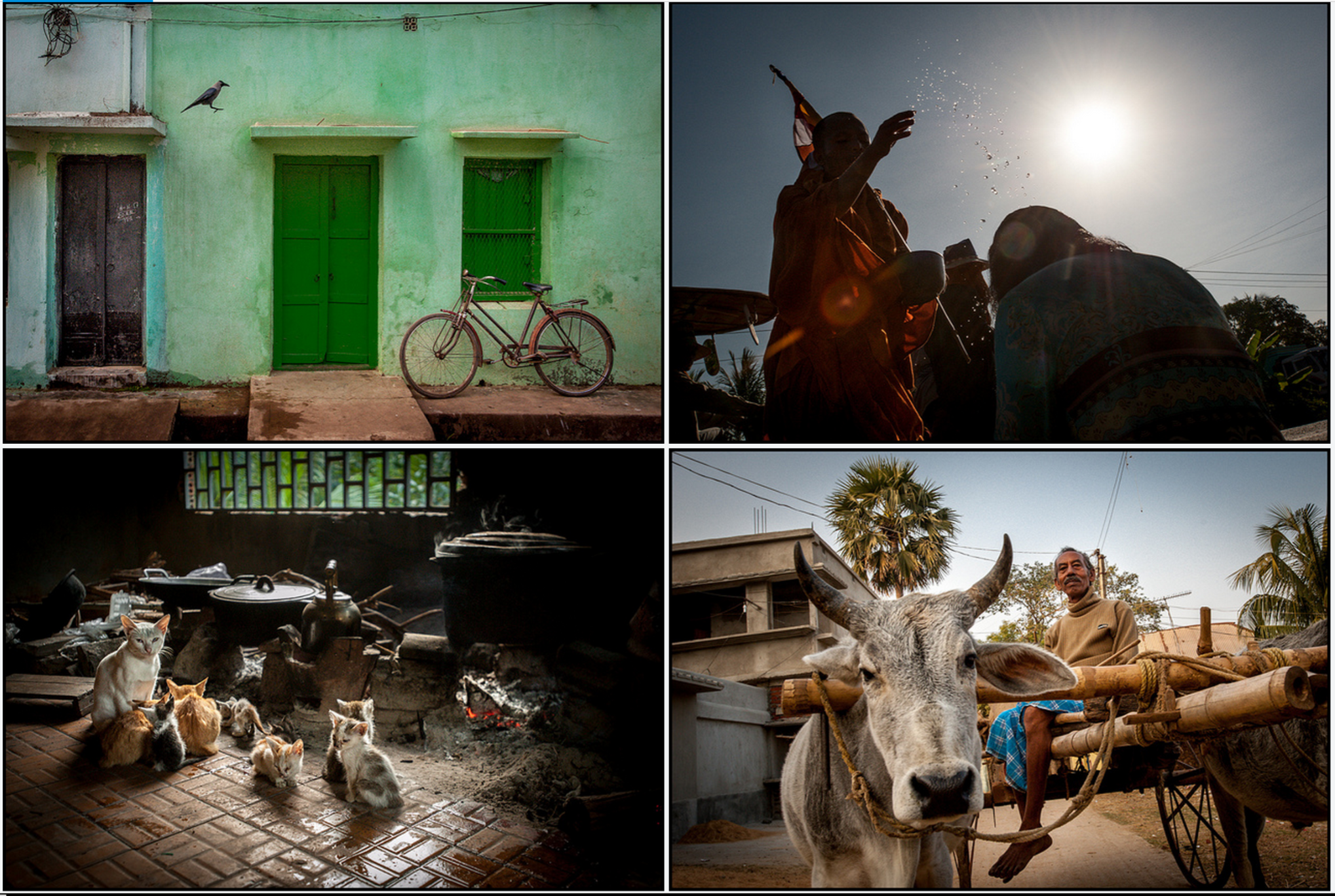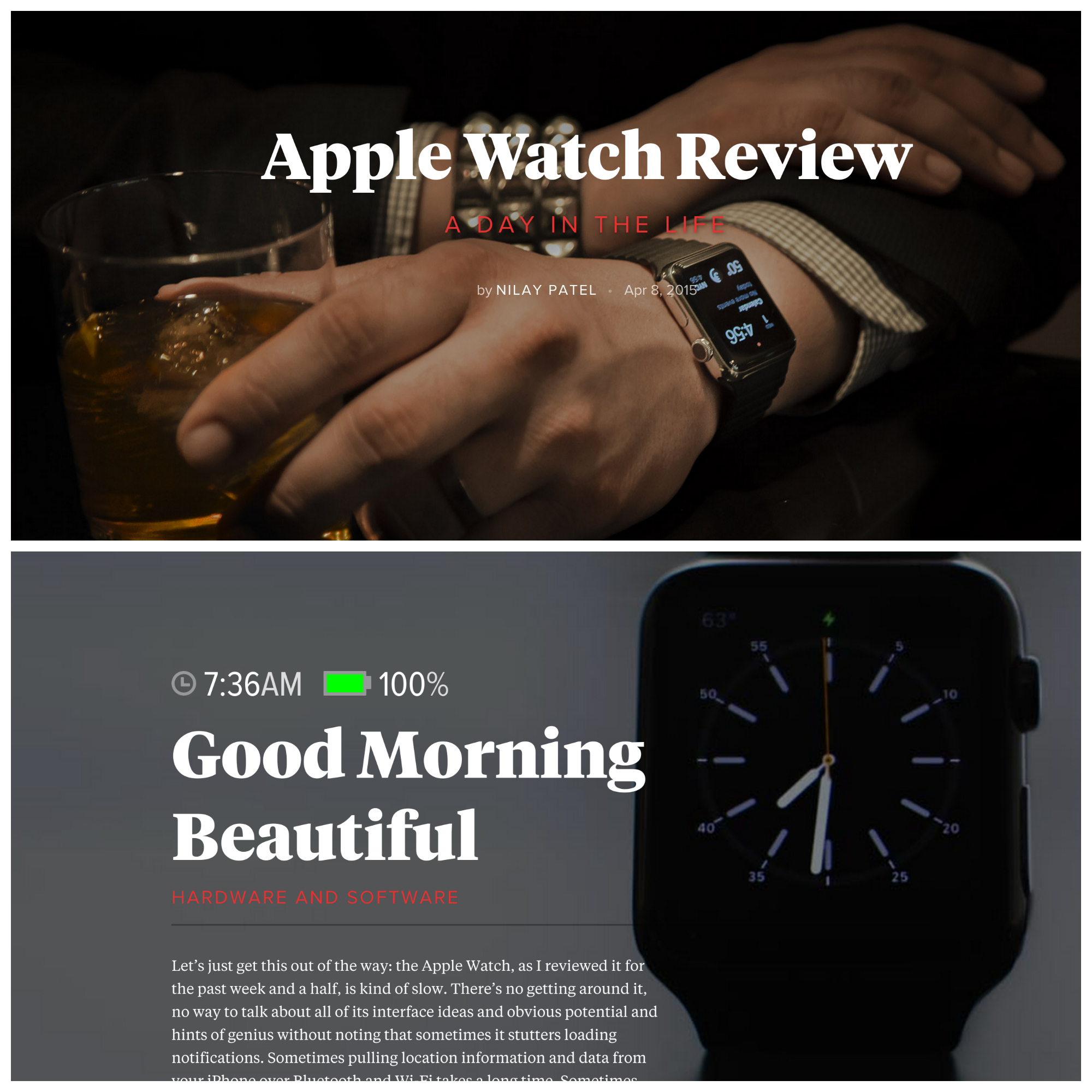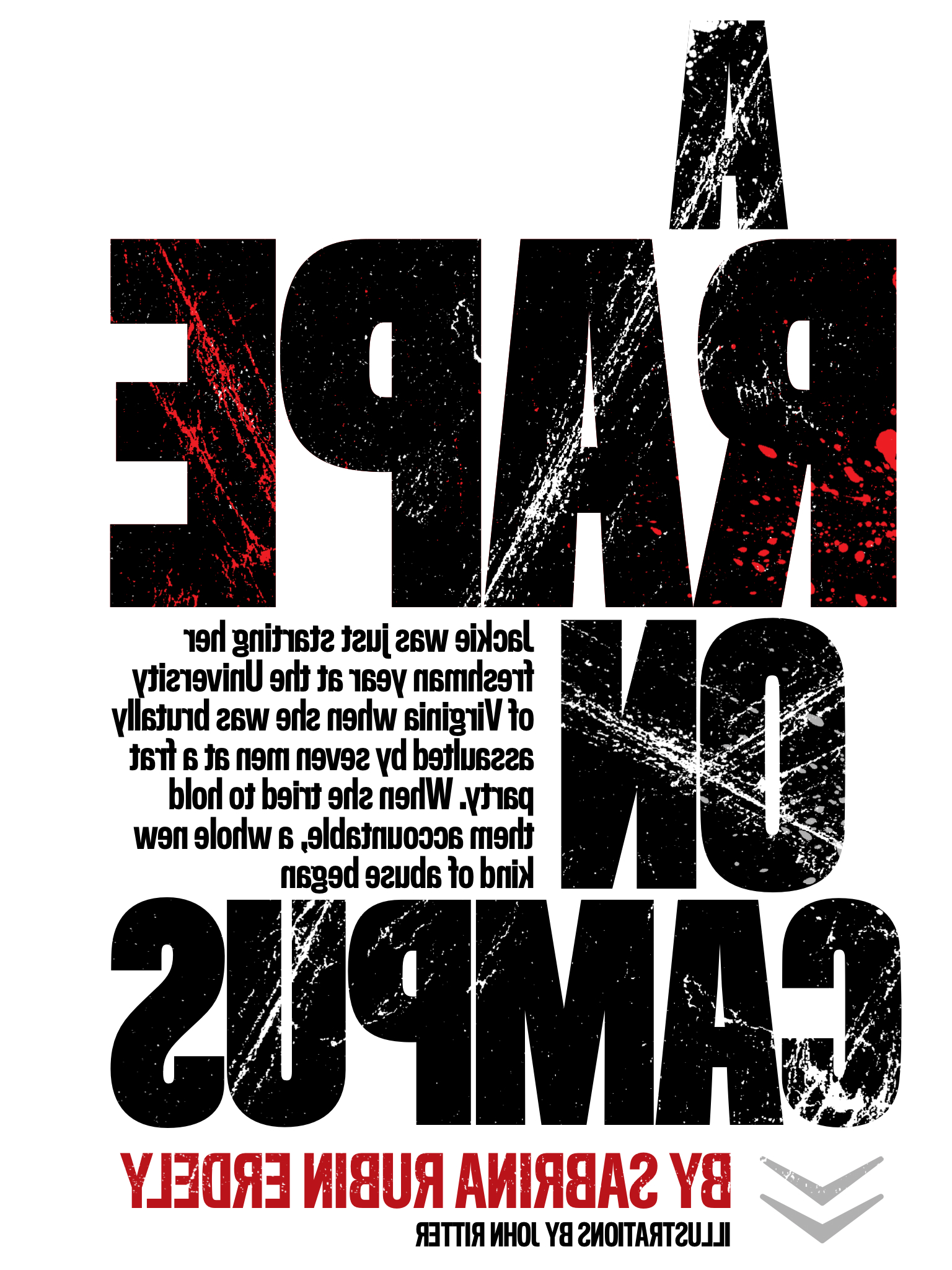Journalists and the organizations they work for need to know when to stand their ground against entities about which they write and when to give in. IMAX wants Ars Technica to retract mentioning the company […]


Journalists and the organizations they work for need to know when to stand their ground against entities about which they write and when to give in. IMAX wants Ars Technica to retract mentioning the company […]

Today’s excerpt from Responsible Reporting: Field Guide for Bloggers, Journalists, and Other Online News Gatherers spotlights the fourth type of journalism. The other three: Contextual, process, and conversational. Advocacy journalism is the most provocative of the five that the ebook identifies. Many people working in traditional news media outlets would scoff at the idea.
They would be wrong. Advocacy journalism has a long history—centuries old—but the Internet magnifies its reach and the soapbox upon which its proponents stand.

It must be Sunday, because here I write another introduction to a chapter from my ebook Responsible Reporting: Field Guide for Bloggers, Journalists, and Other Online News Gatherers. Section 2 introduces five journalisms—contextual and process were presented the previous two weeks. Next up, conversational journalism applies community concepts from local newspapers to the expansive Internet audience, which is actively engaged wherever and on whatever device it may be.
Please also read the other excerpts: Foreward and from Section 1, Chapters, I and II, III and IV, V and VI to grasp the logical flow. Reminder: The book releases into the public domain soon after the serialization completes.

One section down, it’s two to go as we begin the second. The serialization of my ebook Responsible Reporting: Field Guide for Bloggers, Journalists, and Other Online News Gatherers continues ahead of its release into the public domain. So far we have the Foreward and from Section 1, Chapters, I and II, III and IV, V and VI.
The section’s short introduction is explanation enough what to expect. However, let me remind that all information was current when published 14 months ago and largely is unchanged today. Largely isn’t completely. Relevant clarification: Pricing for the New York Times digital editions is accurate but doesn’t reflect a current half-price promotion for 26 weeks. That said, the point—pricing that is an affront to consumer contextual consumption of news—is just as valid.

If you don’t follow my “Flickr a Day” series, you really miss out. The 133rd, “Jenna Bean“, is the most recently curated photo. There will be 365 pics picked this year, with no photographers repeated (unless by carelessness), Storytelling motivated me to begin the project on January 1.
But there are many images or shooters I want to feature but don’t. Okay, can’t. Two common problems: Resolution of the photos are too low or they are licensed All Rights Reserved. The project only features Creative Commons-available content.

One thing has changed in the 13 months since the following book excerpt was written: Google loosened some of its services and software cross-integration, presumably in response to antitrust problems in Europe. The company is in the process of divesting some Google+ assets, for example. But in other respects, integration is tight as ever, particularly around mobile, which in 2015 dominates U.S. Google search—and nine other countries, including Japan.
That introduction is important context for reading today’s serialization of my ebook Responsible Reporting: Field Guide for Bloggers, Journalists, and Other Online News Gatherers. The third and fourth chapters carry forward an incredibly important, but often misunderstood, theme: The Google economy’s devastating impact on news gathering, and eroding ethical standards around it. I am not anti-Google, being myself a huge consumer of the company’s services. Nevertheless, criticism stands.

Today begins the serialization of my ebook Responsible Reporting: Field Guide for Bloggers, Journalists, and Other Online News Gatherers before its release into the public domain. I did similarly with Comic-Con Heroes: The Fans Who Make the Greatest Show on Earth. That book goes into the public domain on May 7, after my exclusive distribution commitment with Amazon ends.
Responsible Reporting was a labor of love. My profession is in a dramatic state of transition. I sought to provide a realistic treatise for the new journalism. New it is, steeped in ethical quagmire. I hoped to provide reasonable guidelines that accept how things are, rather than cling to how things were.

Some days you wake up and wonder. As part of my morning routine, reading email and recent posts to my social networks and from RSS feeds is the first activity after greeting my wife. “The Risk Of Reviewing The Reviewer“, which actually published yesterday, riveted my early-day attention. For TechCrunch, Aimee Millwood writes something everyone, particularly bloggers and journalists, should read. You aren’t her intended audience, but you should be.
The headline to this post is among her key quotables and resonates with a point that I repeatedly make here on this site and emphasize in my ebook Responsible Reporting: Field Guide for Bloggers, Journalists, and Other Online News Gatherers: While inexplicably intertwined, trust trumps truth. The pursuit of truth isn’t your first ethical objective but establishing and maintaining trust with your audience—and, yes, this concept contradicts traditional journalism teaching. But it doesn’t, since truth ties to trust.

I am impressed with The Verge’s magazine-like presentation for the web, and the Apple Watch review is exceptional example. Presentation in PC browser or either of my Androids, Nexus 6 or 9, freshly flows from graphics to text overlay to paragraphs of experiential writing. Format, using the device during one day and fine touch of battery icon and time per major graphic, beautifully fits content and context.
Last month’s NeimanLab post “This is my next step: How The Verge wants to grow beyond tech blogging” spotlights changes ahead. “What The Verge has been doing the past six months, and will be doing for the next six, is turning itself into a site that covers pop culture, science, and even cars with the same voice they’ve trained on the world of technology”, NeimanLab assistant editor Justin Ellis explains. The Apple Watch review, posted today with a scad of others, illuminates transition underway. What impresses is writer Nilay Patel’s apparent honesty about the device’s benefits and shortcomings.

The symbolism is recognizable, but as what depends on the eventual outcome. Dateline April 5, 2015, Easter Sunday, “Rolling Stone and UVA: The Columbia University Graduate School of Journalism Report” posted to the magazine’s website. The holiday celebrates Jesus Christ’s resurrection, following crucifixion. The Washington Post and several other organizations crucified Rolling Stone in December 2014 for long-form news story “A Rape on Campus”. The exhaustive autopsy of the story’s reporting and publication is another another crucifixion, arriving on a day that celebrates resurrection, salvation. Will RS have the one by voluntarily inviting the other?
“A Rape on Campus” spotlights the alleged sexual assault of a University of Virginia student identified as Jackie. The investigative report paints a campus culture of acceptable assault without reproach or reprisal. But the veracity of Jackie’s account later collapsed. Rolling Stone sought outside examination, which by itself demonstrates just how strongly the magazine strives to report responsibly.

Three months ago, I commanded: “Writers, Own Your Content!“. Some of my best tech-industry news and analysis is gone from the Web—six years of posts—because of corporation changes; one employer was acquired, while the other restructured. The sites I managed vanished. Now I defy good SEO practice and double post content to my work website and to my personal one. Art typically is different, and headlines are never the same.
Reader reaction to one recent headline just shocks me, and makes me chuckle.

As a working journalist, I am conflicted about Google. In my ebook Responsible Reporting: Field Guide for Bloggers, Journalists, and Other Online News Gatherers, I call the company a “leech that feeds off the intellectual property of legitimate content producers” and rail on the Google free economy’s negative impact on the Fourth Estate. That said, I am a huge consumer of the company’s products and services, which enable me to better do my job and that empower my life.
Something else: A decade ago (yes, 2005), I identified “Search as the New User Interface“—and it has proved to be for a generation of computer users. The UI, particularly from Google, helps to democratize content, and so doing empowers (there’s that “e” word again) everyone. But search also encourages content piracy. Philosophically, I strongly believe in information for all. Economically, I want to earn a living from writing, which is much more difficult in 2015 than 2005.